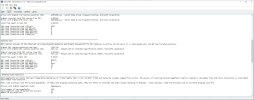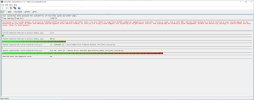I have a strange Windows 10 guest issue. I don’t have any native Windows systems to just try it.
When I copy a 20GB file over SMB, Windows 10 stutters - not just the mouse pointer, but animations in a running browser (for instance).
I tried copying the file locally, while also running iPerf, and it was totally fine.
I notice while running SMB one of the Windows cores is pegged to 100%, but all the others are fine.
I’m using the VFIO NIC interface. SSD has an IO thread. The VM itself has 8GB mem and 16 cores.
Seems to be hard to Google as all the results seem to be about SMB performance itself, not Windows performance during an SMB copy.
When I copy a 20GB file over SMB, Windows 10 stutters - not just the mouse pointer, but animations in a running browser (for instance).
I tried copying the file locally, while also running iPerf, and it was totally fine.
I notice while running SMB one of the Windows cores is pegged to 100%, but all the others are fine.
I’m using the VFIO NIC interface. SSD has an IO thread. The VM itself has 8GB mem and 16 cores.
Seems to be hard to Google as all the results seem to be about SMB performance itself, not Windows performance during an SMB copy.
Last edited:



